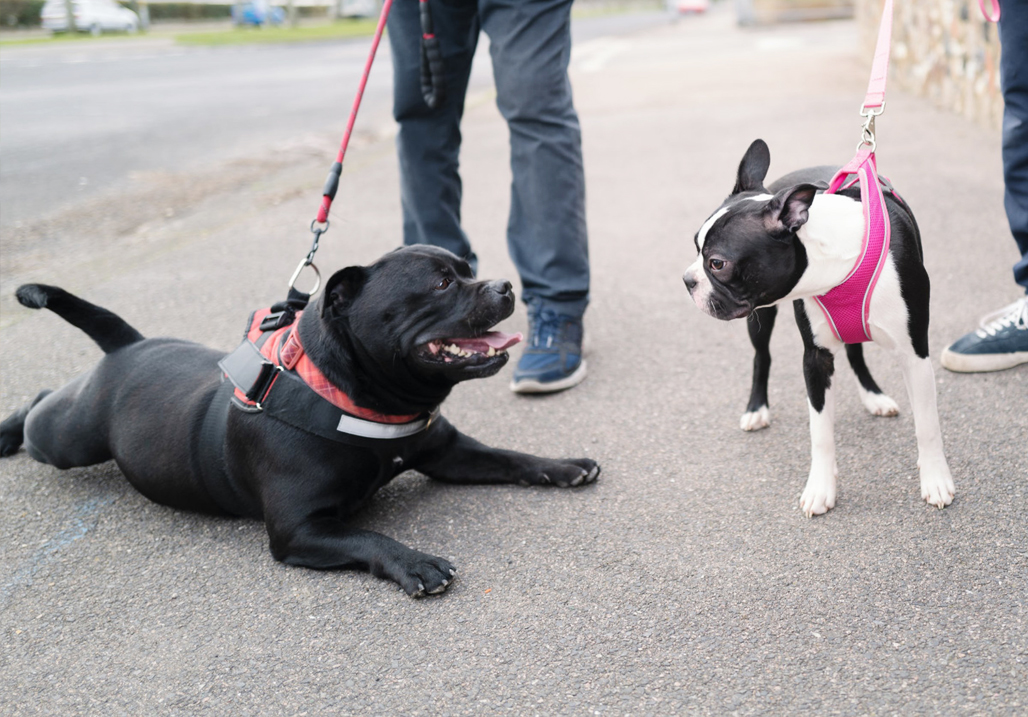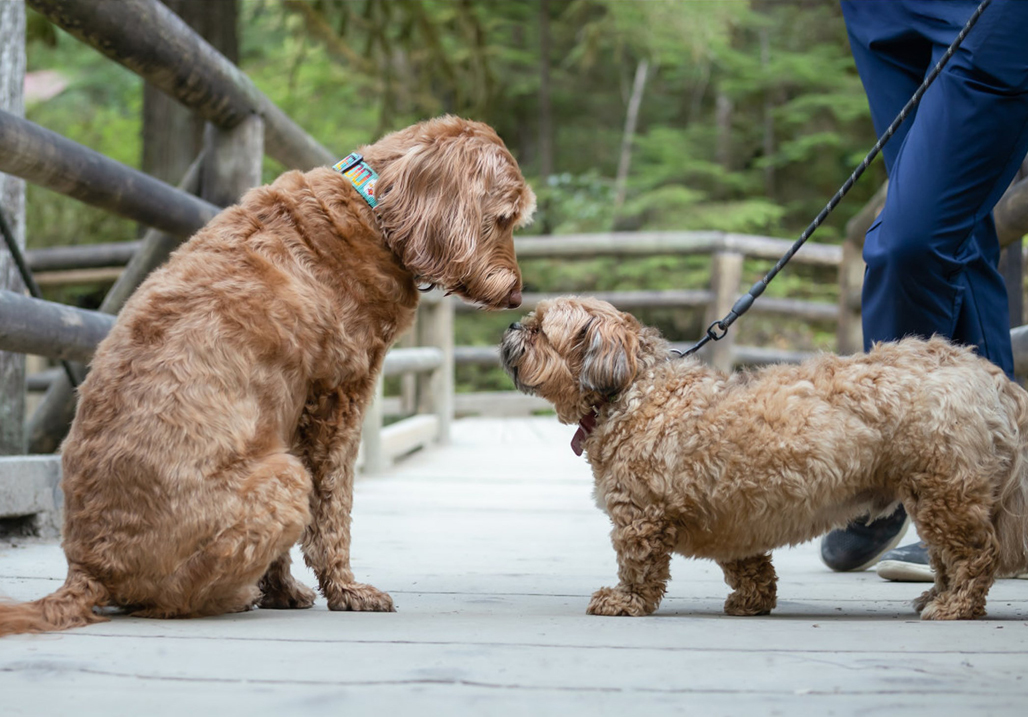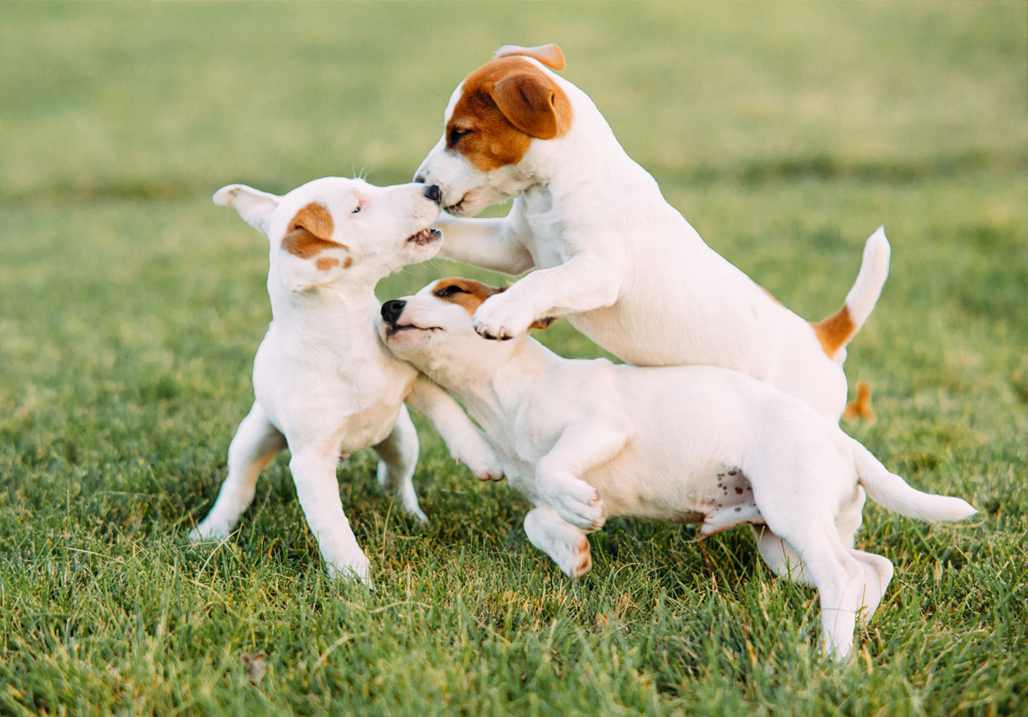How to Raise a Socially Savvy Canine: Tips for Mastering Dog Social Skills
Nov 16,2023 | Petbobi
As doting dog parents, we all want our furry friends to live their very best lives, and that means learning how to make friends for dogs.
A big part of giving our dogs an enriching existence is ensuring they know how to properly socialize with other pups. This is achieved by teaching them polite manners and doggie etiquette from a young age; setting them up to feel comfortable in any social setting.
And this, in turn, allows our four-legged companions to make new friends with ease.
In this guide, we'll share tips on how to raise a well-mannered puppy who loves meeting fellow furry friends. From respecting boundaries to mastering proper greetings, we'll cover the dos and don'ts of doggie decorum.
Read on for a primer on raising a socially savvy canine!
Why are Social Skills Crucial for Dogs?

Before diving into proper puppy manners, let's chat about why strong social skills are so crucial for our furry friends. The more you understand this, the better you can be when leading your dog around others.
Importance of Dog Socialization: Social skills are the grease that keeps the wheels of doggy society running smoothly. They involve a learned set of behaviors that allow dogs to interact and communicate effectively with others in both human and dog circles.
Consequences of Poor Socialization: Poorly socialized dogs experience higher levels of stress, anxiety, and fear. Their ability to handle new or unexpected situations becomes compromised, leading to potential aggressive behaviors or other undesirable reactions.
Benefits of Well-Socialized Dogs: On the sunny side of dog socialization, a well-socialized dog navigates the world with a confident tail wag. They're adaptable, less likely to display aggression or fearfulness, and more likely to have positive interactions with humans and fellow dogs.
And all of these combined wins for everybody!
The TLDR is this: Solid social skills are a key ingredient in your dog's well-being and happiness. When dogs know proper doggie decorum, their playful charm shines through during every new encounter.
That means raising a socially savvy pup gives you countless rewards.
Understanding Dog Behavior and Communication

When it comes to canine camaraderie, an essential first step is learning the unique 'dog language' our furry friends use to communicate. The canine communication library includes barks, growls, whines, tail wags, ear positions, body postures, and eye contact. It's like dogs have their own secret code. Learning to interpret these signals helps us translate from 'barking to English' to determine our dogs' expressions.
Recognizing emotions is key - happy; excited dogs may wag their tails rapidly and initiate play. Meanwhile, scared or worried pups may cower with tails between their legs, flattened ears, and exposed whites of their eyes. Stress signs can include excessive panting, lip licking, or yawning. Understanding the meaning behind these behaviors provides insight into how our dogs experience the world.
By tuning into dog communication, we can strengthen our bonds with our furry BFFs and better address any dog behavioral issues. You can also spot when your dog (or the other dog you're interacting with) is becoming stressed or excited and may need a moment to calm down or for you to take other action.
It's all about mindfulness and being aware.
Dog Social Etiquette 101: The DOS

Now we've covered the importance of social skills and understanding dog language, let's dive into some tried-and-true tips for mastering the art of doggy diplomacy.
Here are some vital "dos" that will set your furry companion on the path to social success:
Start the Fur-riendship Early
The prime time to expose your dog to social situations is between three weeks and fourteen weeks of age. This critical window offers a golden opportunity to introduce them to various people, dogs, and environments. The earlier you can socialize with your pup, the more confident they'll be growing up.
Respect Their Comfort Zone
Be mindful of your dog's personal preferences and let them approach new situations at their own pace. You know your dog better than anyone, so it's up to you to ensure you're tuning in and respecting them and their needs like they're one of the family (because they are)
You want to give them the confidence to explore while knowing you have their back. If things get stressful or something goes wrong (perhaps the other dog is causing a problem), you want your dog to know you'll step in and work through it together.
Use Positive Reinforcement for Good Dog Behavior
The best way to train dogs is to reward them with toys, treats, praise, and pats for displaying good manners and social behaviors. This simply tells your dog they're doing a good job, and however they respond in whatever situation you're in is the right thing for them to do.
In a socializing context, this means reinforcing the positive experiences when they're nice and calm around new friends and are well-behaved around others. This is typically far more effective than negatively shaming or punishing bad dog behavior.
Monitor Play Sessions
Socializing your dog is never a one-and-done process, especially during the early stages. Sure, you may have a few positive back-to-back experiences, and that's such a good thing. However, that doesn't mean the job is done.
Just as you would a child, it's crucial you continue to monitor play sessions and have their back, taking on all the body language and signs we covered in the previous section.
Keep an eye on body language and intervene if you notice inappropriate dog behavior or increasing tension.
Expose Them to Diverse Experiences
Gradually introduce your pup to different sights, sounds, and smells, from bustling parks to quiet trails. Taking them on trains, trams, taxis, and buses can be a good idea, even if you have your own car. You could go camping, shopping, or a historic house.
It's this process of exposing them to a variety of situations that will help them become more adaptable and open to new friendships.




